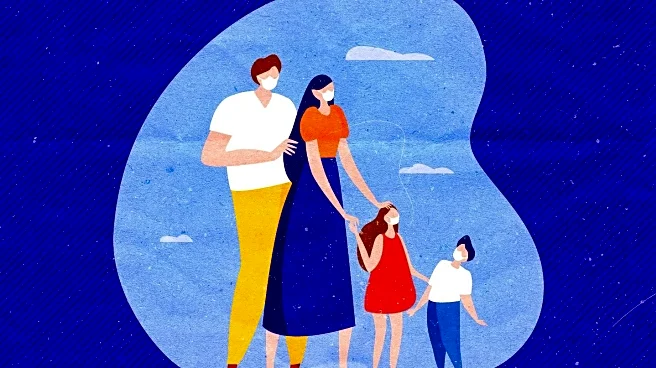What's Happening?
The Social Security Administration has released a retrospective list of the most popular baby names from the year 2000, highlighting significant shifts in naming trends over the past 25 years. While names like Emily and Jacob topped the charts for girls and boys respectively, the popularity of certain names has waned. Names such as Jessica, Destiny, and Megan, once common for girls, have seen a decline in favorability. Conversely, names like Olivia and Emma have risen to the top in recent years. This list provides insight into how cultural and societal influences have shaped naming conventions over time.
Why It's Important?
Understanding shifts in baby naming trends offers a glimpse into broader cultural changes and societal values. Names often reflect generational influences, including media, celebrity culture, and historical events. The decline in popularity of names like Jessica and Megan may indicate changing perceptions or associations with these names. Meanwhile, the rise of names like Olivia and Emma suggests a preference for timeless or classic names. These trends can impact industries such as marketing and branding, where understanding consumer demographics and preferences is crucial.
What's Next?
As naming trends continue to evolve, future lists from the Social Security Administration will likely reflect new cultural influences and societal shifts. Parents may increasingly choose names that reflect personal values or cultural heritage, leading to greater diversity in naming conventions. Additionally, the influence of global media and digital connectivity may introduce new names or revive older ones, further diversifying the landscape of popular baby names.
Beyond the Headlines
The evolution of baby names also touches on deeper cultural dynamics, such as the impact of globalization and multiculturalism. As societies become more interconnected, names from different cultures may gain popularity, reflecting a blending of traditions and identities. This can foster greater inclusivity and representation within communities, as names serve as a form of cultural expression and identity.











